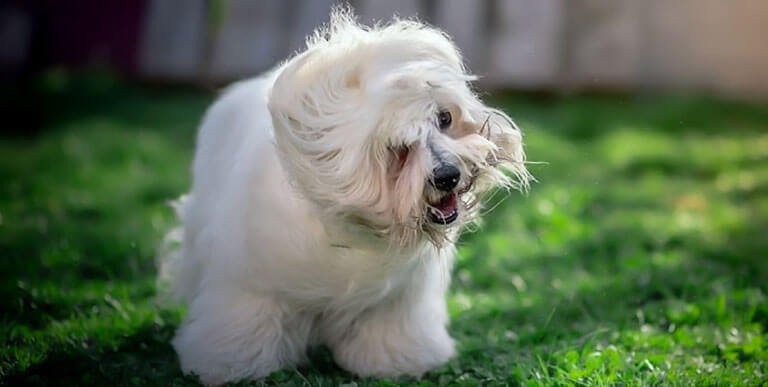Coton De Tulear Health Problems: Vital Insights & Care Tips
Coton de Tulears can face various health issues, including hip dysplasia, eye problems, and skin allergies. Regular vet check-ups and a healthy diet can help manage these conditions.
Coton de Tulears are charming, small dogs known for their fluffy coats and friendly demeanor. Despite their appealing nature, potential owners should be aware of common health problems that may affect this breed. Understanding these issues can lead to better care and improved quality of life.
Regular veterinary visits and preventive measures play a crucial role in maintaining their health. Knowledge about specific conditions, such as hip dysplasia or eye disorders, empowers pet owners to make informed decisions. With proper care and attention, Coton de Tulears can lead happy, healthy lives, making them wonderful companions for families and individuals alike.
Introduction To Coton De Tulear

The Coton De Tulear is a charming dog breed. Known for its soft, fluffy coat, this breed is small yet full of personality. They are great companions and bring joy to many families. Understanding their health problems is essential for every owner.
Origins And Popularity
The Coton De Tulear has a rich history. This breed originated from Madagascar. They were initially pets of royalty. Over time, they became popular worldwide due to their friendly nature.
- Origin: Madagascar
- First recognized: 1970s
- Popular for: Friendly temperament
- Size: Small
Today, Coton De Tulears are loved by many dog owners. Their playful and affectionate nature adds to their appeal. They make excellent family pets.
Physical Characteristics
The Coton De Tulear is known for its distinct looks. They typically weigh between 8 to 13 pounds. Their height ranges from 9 to 11 inches. Here are some key features:
| Characteristic | Description |
|---|---|
| Coat | Fluffy, cotton-like, usually white |
| Eyes | Dark, round, expressive |
| Build | Compact, sturdy frame |
These dogs have a cheerful expression and a vibrant personality. Their coat requires regular grooming to prevent matting. Owners should keep up with grooming for a healthy, beautiful coat.
Common Health Issues In Coton De Tulear
The Coton De Tulear is a charming breed. They are known for their friendly nature and fluffy coats. However, like all dogs, they face specific health issues. Understanding these common problems helps in providing better care.
Hip Dysplasia
Hip dysplasia is a genetic condition. It affects the hip joint’s development. This can lead to arthritis and pain. Symptoms may include:
- Difficulty in standing up
- Reluctance to run or jump
- Waddling gait
Regular vet check-ups can help detect this early. Maintaining a healthy weight reduces stress on joints.
Allergies
Coton De Tulears can suffer from allergies. These may be environmental or food-related. Common signs of allergies include:
- Itchy skin
- Red, inflamed skin
- Ear infections
Identifying the allergen is crucial. Consult a vet for proper diagnosis and treatment.
Dental Problems
Dental health is vital for Coton De Tulears. They are prone to dental issues like:
- Tartar buildup
- Gum disease
- Tooth loss
Brush their teeth regularly. Provide dental chews to promote oral health. Regular vet visits are essential for cleanings.
Genetic Conditions To Watch Out For
The Coton De Tulear is a charming breed known for its playful nature. However, like many dogs, they can inherit certain health issues. Understanding these genetic conditions is crucial for ensuring your pet’s well-being. This section covers two significant health concerns: Progressive Retinal Atrophy and Patellar Luxation.
Progressive Retinal Atrophy
Progressive Retinal Atrophy (PRA) is a genetic eye disorder. It leads to gradual vision loss. Early signs include:
- Difficulty seeing in low light
- Night blindness
- Increased bumping into objects
PRA can eventually cause complete blindness. Regular eye check-ups help in early detection. Consider genetic testing if your dog shows symptoms. Early intervention can improve quality of life.
Patellar Luxation
Patellar Luxation is another common condition in Coton De Tulears. This issue affects the kneecap. It can dislocate from its normal position. Symptoms may include:
- Limping or skipping while walking
- Pain in the knee area
- Swelling around the joint
This condition can be mild or severe. Some dogs need surgery for correction. Regular vet visits help monitor joint health. Keep your dog active to maintain muscle strength.
| Condition | Symptoms | Treatment |
|---|---|---|
| Progressive Retinal Atrophy |
| Regular eye check-ups, genetic testing |
| Patellar Luxation |
| Physical therapy, surgery if severe |
Nutritional Needs For Optimal Health
Coton De Tulears require a well-balanced diet for their health. Proper nutrition supports their immune system and overall well-being. Choosing the right food is vital for their growth and energy.
Balanced Diet Essentials
A balanced diet for Coton De Tulears should include:
- High-quality protein: Chicken, turkey, or fish.
- Healthy fats: Omega-3 and Omega-6 fatty acids.
- Whole grains: Brown rice, oats, or quinoa.
- Fruits and vegetables: Carrots, blueberries, and spinach.
Portion control is important. Follow feeding guidelines on pet food labels. Monitor their weight regularly to prevent obesity.
Supplements And Vitamins
Supplements can enhance your Coton De Tulear’s diet. Consider these:
| Supplement | Benefits |
|---|---|
| Fish Oil | Supports skin and coat health. |
| Probiotics | Aids digestion and gut health. |
| Glucosamine | Promotes joint health. |
| Vitamin E | Boosts immune system. |
Consult your vet before adding supplements. They can recommend the right options.
Exercise Requirements
Coton De Tulears need regular exercise to stay healthy. These small dogs have a lot of energy. Daily activities keep them fit and happy. Without enough exercise, they may develop health issues. Regular playtime helps them maintain a healthy weight.
Daily Exercise Routine
A daily exercise routine is vital for Coton De Tulears. Aim for at least 30 minutes of activity each day. This can include walks, playtime, or agility exercises. Here’s a simple daily routine:
- Morning Walk: 15 minutes
- Afternoon Play: 10 minutes of fetch
- Evening Stroll: 5 minutes
Varying the routine keeps it exciting. Try different parks or trails. Socializing with other dogs is also beneficial.
Mental Stimulation Activities
Coton De Tulears require mental challenges. Boredom can lead to destructive behavior. Incorporate fun activities to keep their minds sharp. Here are some ideas:
- Puzzle Toys: Use toys that release treats.
- Training Sessions: Teach new tricks regularly.
- Hide and Seek: Hide treats for them to find.
- Interactive Games: Engage in tug-of-war.
Mix physical and mental exercises. This balance promotes overall well-being. Happy Coton De Tulears are healthy Coton De Tulears!
Grooming Tips For A Healthy Coat
Proper grooming is essential for maintaining a Coton De Tulear’s beautiful coat. Regular care helps prevent health issues and keeps your dog comfortable. Follow these tips for a shiny and healthy coat.
Regular Brushing Techniques
Brushing your Coton De Tulear regularly prevents matting and tangles. Use the right tools for best results.
- Brush Frequency: Brush at least 3 times a week.
- Tools:
- Use a slicker brush for tangles.
- Follow with a wide-toothed comb.
- Brushing Technique:
- Start from the top, working downwards.
- Be gentle around sensitive areas.
- Brush in sections to avoid missing spots.
Regular brushing not only keeps the coat clean but also promotes skin health.
Bathing And Skin Care
Bathing your Coton De Tulear is crucial for skin health. Use gentle, dog-specific shampoos.
| Bathing Tips | Frequency |
|---|---|
| Use lukewarm water. | Every 4-6 weeks. |
| Rinse thoroughly to remove soap. | As needed for dirt. |
| Dry with a soft towel. | After every bath. |
Check your dog’s skin for redness or irritation during baths. Moisturize if needed. This keeps the skin healthy.
Following these grooming tips ensures your Coton De Tulear remains healthy and happy. A well-groomed coat reflects a happy dog!
Preventive Health Measures
Keeping your Coton De Tulear healthy involves proactive steps. Regular care helps prevent serious health issues. Simple measures can enhance their well-being and longevity.
Routine Vet Check-ups
Regular visits to the vet are essential. These check-ups help catch problems early. Aim for at least one visit per year. Puppies may need more frequent visits.
- Check for dental health
- Monitor weight and diet
- Examine coat and skin
- Assess heart and lungs
Keep vaccination records updated. Discuss any behavioral changes with your vet. Early detection leads to better outcomes.
Vaccinations And Parasite Control
Vaccinations protect against serious diseases. Your vet will recommend a vaccination schedule. Core vaccines include:
| Vaccine | Age to Administer |
|---|---|
| Distemper | 6-8 weeks |
| Parvovirus | 6-8 weeks |
| Rabies | 12-16 weeks |
Prevent parasites like fleas and ticks. Use vet-approved treatments regularly. This keeps your Coton safe and healthy.
- Administer monthly flea and tick prevention
- Use heartworm prevention year-round
- Check for intestinal worms regularly
Invest in your pet’s health. Routine care leads to a longer, happier life.
When To Seek Veterinary Care
Understanding when to seek veterinary care for your Coton De Tulear is crucial. These dogs are prone to specific health issues. Early detection can lead to better outcomes. Knowing the signs of illness helps owners act quickly.
Signs Of Illness
Watch for these common signs of illness in your Coton De Tulear:
- Lethargy: Lack of energy or interest in activities.
- Change in Appetite: Eating less or not at all.
- Vomiting: Frequent or severe episodes of vomiting.
- Diarrhea: Persistent diarrhea can indicate a problem.
- Coughing: Frequent coughing or difficulty breathing.
- Changes in Behavior: Sudden aggression or withdrawal.
Monitor your pet closely. Any of these signs warrant a visit to the vet.
Emergency Situations
Some situations require immediate veterinary attention. Recognize these emergencies:
| Emergency Situation | What to Look For |
|---|---|
| Severe Injury | Open wounds, bleeding, or broken bones. |
| Difficulty Breathing | Labored breathing or wheezing sounds. |
| Seizures | Uncontrolled shaking or loss of consciousness. |
| Swollen Abdomen | Abdominal swelling or discomfort. |
| Unresponsiveness | Not responding to stimuli or lethargy. |
Act quickly in these situations. Timely intervention can save your pet’s life.
Frequently Asked Questions
What Are Common Coton De Tulear Health Issues?
Coton De Tulears often face issues like hip dysplasia, eye problems, and skin allergies.
How Can I Prevent Health Problems In Coton De Tulears?
Regular vet check-ups, a balanced diet, and proper exercise help prevent many health issues.
What Should I Feed My Coton De Tulear For Good Health?
High-quality dog food rich in protein and essential nutrients is best for their overall health and vitality.
Do Coton De Tulears Need Special Grooming For Health?
Regular grooming prevents matting and skin infections, keeping your Coton De Tulear healthy and comfortable.
How Often Should I Take My Coton De Tulear To The Vet?
Annual vet visits are essential, but more frequent check-ups may be needed for older or ailing dogs.
Conclusion
Coton de Tulears can face various health issues. Regular vet check-ups are essential for early detection. A balanced diet and exercise help maintain their health. Being aware of potential problems allows for better care. Keep your Coton happy and healthy by staying informed and proactive about their needs.
Your furry friend deserves the best!






